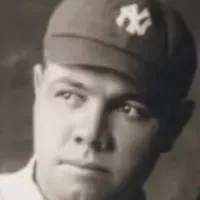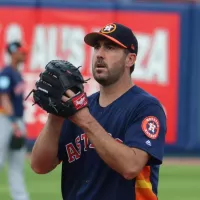The Detroit Tigers are a professional baseball team based in Detroit, Michigan. Established in 1894 as a Western League team, they are a charter member of the American League (AL) and currently compete in the AL Central Division. Notably, the Tigers are the only Western League team remaining in their original city and the oldest AL team maintaining their original name and location.
1900: Western League Renamed American League
In 1900, the Western League renamed itself the American League, still operating as a minor league.
1901: Start of overall win-loss record
From 1901 to 2024, the Detroit Tigers' overall win-loss record is 9,676–9,567–93 (.503).
1901: Established as a major league franchise
In 1901, the Detroit Tigers were established as a major league franchise.
1902: Walt Dropo ties major league record
In 1952, Tiger first baseman Walt Dropo got a hit in 12 consecutive plate appearances over a three-game stretch from July 14 to 15, tying a major league record set by Johnny Kling in 1902.
1903: Leagues made peace, signed National Agreement
In 1903, the American League and National League made peace and signed a new National Agreement, resolving rumors of the Detroit Tigers relocating to Pittsburgh.
1903: Ballcap mascot replaced by the letter "D"
In 1903, the Detroit Tigers' ballcap mascot, a red tiger on a dark background, was replaced by the letter "D".
1905: Acquisition of Ty Cobb
In 1905, the Detroit Tigers acquired 18-year-old Ty Cobb, who became one of the greatest players of all time.
1907: Won AL pennant, advanced to World Series
In 1907, the Detroit Tigers, led by the hitting of Ty Cobb and Sam Crawford, and the pitching of Bill Donovan and Ed Killian, went 92–58 to win the AL pennant by 1.5 games over the Philadelphia Athletics and moved on to their first World Series appearance against the Chicago Cubs.
1908: Lost World Series to Chicago Cubs
In 1908, the Chicago Cubs defeated the Detroit Tigers in five games in the World Series.
1909: Won AL pennant, Ty Cobb wins batting triple crown
In 1909, Detroit posted a 98–54 season, winning the AL pennant. Ty Cobb won the batting triple crown, hitting .377 with 9 home runs and 107 RBIs, and led the league with 76 stolen bases. George Mullin went 29–8 with a 2.22 ERA.
1909: Lost World Series to Pittsburgh Pirates
In 1909, the Detroit Tigers lost the World Series to the Pittsburgh Pirates in seven games, being defeated 8-0 in the decisive game at Bennett Park.
1910: Finished third in the American League
In 1910, the Detroit Tigers dropped to third place in the American League with an 86–68 record.
1911: Finished second in the American League
In 1911, the Detroit Tigers posted 89 wins to finish second in the American League.
May 15, 1912: Ty Cobb suspended for attacking a fan
On May 15, 1912, Ty Cobb went into the stands to attack a fan and was suspended. The Tigers protested by fielding a team of replacement players, losing 24–2.
1912: Moved into Navin Field
In 1912, the Detroit Tigers moved into Navin Field, which was built on the same location as Bennett Park.
1912: George Mullin Pitches No-Hitter
On July 4, 1912, George Mullin pitched the franchise's first no-hitter in a 7–0 win over the St. Louis Browns on his 32nd birthday.
1913: Finished sixth in the American League
In 1913, the Detroit Tigers sunk to a dismal sixth place in the American League.
1915: Won 100 games, narrowly lost AL pennant
In 1915, the Detroit Tigers won a then-club record 100 games, but narrowly lost the AL pennant to the Boston Red Sox. The outfield of Ty Cobb, Sam Crawford, and Bobby Veach finished #1, #2, and #3 in RBIs and total bases. Cobb set a stolen base record with 96 steals.
1915: Tigers failed to reach postseason in 1915
In 1961, The Detroit Tigers failed to reach the postseason despite winning 100 or more games, though it had happened once before to the Tigers in 1915.
1916: Finished third in the American League
In 1916, the Detroit Tigers dropped to third place with an 87–67 record.
1920: Hughie Jennings left the Tigers
After the 1920 season, Hughie Jennings left the Detroit Tigers, having accumulated 1,131 wins as a manager.
August 19, 1921: Cobb collects 3,000th career hit
On August 19, 1921, Ty Cobb collected his 3,000th career hit off Elmer Myers of the Boston Red Sox. At 34, he is the youngest player to reach that milestone.
1921: Cobb took over managerial duties
In 1921, Ty Cobb took over managerial duties for the Detroit Tigers.
1921: Set AL record for hits and batting average
In 1921, the Detroit Tigers amassed 1,724 hits and a team batting average of .316, the highest team hit total and batting average in AL history. However, the team finished in sixth place due to poor pitching.
1923: Heilmann hit .403
In 1923, Harry Heilmann hit .403, becoming the last AL player to top .400 until Ted Williams in 1941.
1925: Heilmann wins batting title
In 1925, Harry Heilmann collected six hits in a season-ending doubleheader to win the batting title, finishing at .393 to Tris Speaker's .389.
November 1926: Cobb Announces Retirement
In November 1926, Ty Cobb announced his retirement after 22 seasons with the Detroit Tigers.
1927: Heilmann wins batting title
In 1927, Harry Heilmann finished with a .398 batting average and won his fourth AL batting title.
1933: Acquired Mickey Cochrane
Following the 1933 season, the Detroit Tigers acquired catcher Mickey Cochrane from the Philadelphia Athletics to serve as player-manager.
1934: Did not challenge 1934 team win total
Although the Detroit Tigers won the AL Pennant in 1935, their win total did not challenge the 1934 team's 101 wins.
1934: Best winning percentage in franchise history
In 1934, the Detroit Tigers had their best winning percentage in franchise history at .656.
1934: Lost World Series to St. Louis Cardinals
In 1934, the Detroit Tigers lost the World Series in seven games to the "Gashouse Gang" St. Louis Cardinals. The final game at Navin Field was marred by controversy when Joe Medwick was removed for his own safety after spiking Marv Owen and being pelted with debris.
1934: Won AL pennant with team record
In 1934, the Detroit Tigers won the AL pennant with a 101–53 record, which was a team record for wins at the time. The Tigers infield accumulated 462 runs during the season. Schoolboy Rowe led a strong pitching staff, winning 16 straight decisions at one point and finishing with a 24–8 record.
1934: Denny McLain wins 30 games for first time since 1934
In 1968, Denny McLain won 30 games, making it the first time a pitcher had won 30 or more games in a season since Dizzy Dean accomplished the feat in 1934.
1934: First time Tigers and Cardinals meet in World Series since 1934
In the 1968 World Series, it was the first time the Detroit Tigers and St. Louis Cardinals had met in the World Series since 1934.
1934: 1934 team had better winning percentage
The only team in Tigers' history with a better winning percentage than the 1915 squad was the 1934 team that lost the World Series to the St. Louis Cardinals.
1935: Won AL Pennant
In 1935, the Detroit Tigers, featuring four future Hall of Famers, won the AL pennant with a 93-58 record. Hank Greenberg was named AL MVP after leading the league in home runs and RBIs.
1936: Finished second behind the Yankees
Despite being forecast to win the American League pennant in 1936, the Detroit Tigers fell to a distant second place behind the New York Yankees.
1937: Finished second behind the Yankees
In 1937, the Detroit Tigers finished second behind the New York Yankees.
1938: Doubt about 1939 pennant
During the final week of the 1938 season, the Detroit Tigers presciently held out doubts about a pennant in 1939.
1938: Navin Field expanded, renamed Briggs Stadium
In 1938, Navin Field was expanded and renamed Briggs Stadium.
1939: Figured that 1940 would be their year.
During the final week of the 1938 season, the Detroit Tigers figured that 1940 would be their year.
1939: Finished down the standings
In 1939, the Detroit Tigers finished down the standings with an 81–73 record.
1940: Figured that 1940 would be their year.
During the final week of the 1938 season, the Detroit Tigers figured that 1940 would be their year.
1940: Won Pennant-clinching game
In 1940, rookie Floyd Giebell pitched the pennant-clinching game against Bob Feller of the Indians, winning 2-0.
1940: Tigers Lose World Series
In 1940, the Detroit Tigers lost the World Series to the Cincinnati Reds in seven games, with a final score of 2–1. Bobo Newsom's father passed away in Cincinnati after watching his son win Game 1. Newsom won Game 5 and pitched Game 7 on one day's rest, but the Tigers lost, making it the third time the Tigers had lost a World Series in a deciding seventh game.
1940: Won AL Pennant
In 1940, the Detroit Tigers won the AL pennant by one game. Hank Greenberg won his second AL MVP award after moving to left field and excelling.
1941: Williams hit .406
In 1941, Ted Williams hit .406, breaking a long drought of no AL batter reaching .400 since Harry Heilmann achieved the feat in 1923.
1944: Tigers finish second, Hal Newhouser wins MVP
In 1944, the Detroit Tigers finished second in the American League, largely due to pitchers Hal Newhouser and Dizzy Trout. Newhouser won his first of two consecutive AL MVP awards, going 29-9 with a 2.22 ERA. The Tigers were in first place as late as September 18 but finished one game behind the St. Louis Browns.
1945: Tigers continue winning records after World Series win
Following their World Series win in 1945, the Detroit Tigers continued to have winning records for the remainder of the decade, finishing second in the AL three times, but never winning the pennant.
1946: Hal Newhouser has outstanding season
In 1946, Hal Newhouser had another outstanding season, leading the league in wins (26) and ERA (1.94) while striking out a career-high 275 batters. He finished second in AL MVP voting. Also in 1946, the Tigers acquired George Kell.
1949: George Kell wins batting title
In 1949, George Kell won the batting title in a close race with Ted Williams, finishing with a .34291 average to Williams' .34276.
1950: Tigers post strong record but finish behind Yankees
The 1950 season was frustrating for the Detroit Tigers, who posted a 95–59 record, the fourth-best in team history at the time. However, they finished three games behind the New York Yankees.
1952: Walter Briggs Sr. dies
In 1952, team owner Walter Briggs Sr. died. His son Walter Briggs Jr. inherited the Detroit Tigers.
1952: Tigers have worst season, Virgil Trucks throws two no-hitters, Walt Dropo gets hits in 12 plate appearances
In 1952, the Detroit Tigers had a dismal season, going 50–104, the worst in team history until 2003. Despite the season, Virgil Trucks threw two no-hitters, and Walt Dropo got a hit in 12 consecutive plate appearances from July 14 to 15.
1952: Tigers Win 57 Games
In 1952, the Tigers won 57 games.
1953: Al Kaline debuts
In 1953, outfielder Al Kaline debuted for the Detroit Tigers, beginning a career in which he never played a day in the minor leagues.
1955: Al Kaline becomes youngest batting champion
In 1955, Al Kaline became the youngest batting champion in major league history at the age of 20, hitting .340.
1955: Brooklyn Dodgers wire-to-wire division lead
The Tigers led their division wire-to-wire, from opening day until the end of the season, as the 1984 World Series champion, a feat that hadn't been done in the major leagues since the 1955 Brooklyn Dodgers.
1956: Briggs Jr. forced to sell the Tigers
In 1956, Walter Briggs Jr. was forced to sell the Detroit Tigers to broadcast media owners John Fetzer and Fred Knorr.
1957: John Fetzer Owned the Tigers
Since 1957, the Tigers were owned by broadcasting magnate John Fetzer.
1958: Tigers integrate roster with Ozzie Virgil Sr.
In 1958, the Detroit Tigers became the second to last team to integrate their roster when Dominican player Ozzie Virgil Sr. joined the team.
1960: Tigers improve over 1960
In 1961, the Detroit Tigers had an outstanding season and won 101 games. This was a 30-game improvement over the 71–83 record from 1960.
1961: Roger Maris and Mickey Mantle hit 50 Home Runs
Cecil Fielder was the first AL player to hit 50 home runs since Roger Maris and Mickey Mantle in 1961.
1961: Tigers feature two non-white starters
In 1961, the Detroit Tigers featured two non-white starters, Bill Bruton and Jake Wood.
1961: Tigers win 101 games but finish second
In 1961, the Detroit Tigers won 101 games, leading the majors in runs scored, but finished eight games behind the Yankees. Norm Cash won the batting title with a .361 average, and Rocky Colavito had 45 home runs and 140 RBI.
1962: Cobb's stolen base record broken
In 1962, Maury Wills broke Ty Cobb's 1915 stolen base record of 96 steals.
1963: Lolich and McLain join rotation, Horton debuts
In 1963, pitchers Mickey Lolich and Denny McLain entered the Detroit Tigers' rotation. Outfielder Willie Horton also came aboard.
1964: Stanley and Northrup come aboard
In 1964, outfielders Mickey Stanley and Jim Northrup joined the Detroit Tigers.
1966: Tigers finish third, managers resign due to health problems
During the 1966 season, the Detroit Tigers finished third. Manager Chuck Dressen and acting manager Bob Swift both resigned due to health problems. Dressen died of a heart attack, and Swift died of lung cancer. Frank Skaff took over as manager until the end of the season. Mayo Smith was hired as the new manager following the season.
1967: Tigers finish one game behind Red Sox in pennant race
In 1967, the Detroit Tigers were involved in a close pennant race, finishing one game behind the Boston Red Sox. They needed to sweep a doubleheader on the last day of the season to force a playoff, but lost the second game. Earl Wilson led the Tigers with 22 wins.
1968: Tigers clinch pennant, McLain wins 31 games
In 1968, the Detroit Tigers clinched the AL pennant on September 17, finishing with a 103–59 record. Denny McLain went 31–6 with a 1.96 ERA, winning the AL MVP and Cy Young Award. It was the first time a pitcher had won 30 or more games in a season since 1934.
1968: Tigers face Cardinals in World Series
In the 1968 World Series, the Detroit Tigers faced the St. Louis Cardinals. Manager Mayo Smith made the bold decision to play Mickey Stanley at shortstop, allowing him to play an outfield of Willie Horton, Jim Northrup, and Al Kaline in every game.
1969: Oakland Athletics Become Competitive After Realignment
After the 1969 realignment, the Oakland Athletics became steadily competitive in the American League West division.
1969: Leagues realign, Tigers placed in AL East
In 1969, both leagues realigned into two divisions, and the Detroit Tigers were placed in the American League East. Denny McLain had another outstanding season, earning his second straight Cy Young Award, but the Tigers failed to defend their title, finishing second to the Baltimore Orioles.
1969: Billy Martin managed Twins to AL West Division title
In 1970, Mayo Smith was let go and replaced by Billy Martin who managed the Twins to an AL West Division title in 1969, but was fired after that season.
1970: Tigers finish fourth, Mayo Smith let go
In 1970, the Detroit Tigers had a disappointing season, finishing fourth in the AL East. Mayo Smith was let go and replaced by Billy Martin.
1971: Tigers post 91 wins, Lolich strikes out 308
In 1971, Billy Martin's Detroit Tigers posted 91 wins, finishing second behind the Orioles. Mickey Lolich led the AL with 308 strikeouts, which is still the single-season record in franchise history. Lolich also won 25 games and threw 376 innings.
1971: John Hiller Suffers Heart Attack
In 1971, relief pitcher John Hiller suffered a heart attack.
1972: Tigers capture first AL East division title
In 1972, Joe Coleman, Eddie Brinkman, and Aurelio Rodríguez played crucial roles as the Tigers secured their first AL East division title. Despite an 86–70 record, the Tigers won by just 1⁄2 game due to an early season strike. Brinkman was named Tiger of the Year, and set AL records for a shortstop. Mickey Lolich won 22 games with a 2.50 ERA, while Coleman won 19. The acquisition of Woodie Fryman on August 2 proved pivotal, as he went 10–3 and won the division-clinching game on October 3 against the Boston Red Sox.
1972: Won division title as member of AL East
In 1972, the Detroit Tigers won a division title as a member of the AL East.
1972: ALCS Game 1: Kaline Homer and LaGrow Hitting Bert Campaneris
In the 1972 ALCS Game 1, Mickey Lolich allowed one run over nine innings against the Athletics, matched by Catfish Hunter. Al Kaline's solo homer in the 11th was followed by a throwing error, leading to a 2-1 loss for the Tigers. In Game 2, Detroit lost 5-0. Lerrin LaGrow hit Bert Campaneris with a pitch, leading to Campaneris throwing his bat at LaGrow. Both were suspended for the remainder of the series.
1972: Northrup feuds with Martin in ALCS
The feud between Jim Northrup and Billy Martin began during the 1972 ALCS, which Northrup claimed "took the fun out of the game."
1973: John Hiller records 38 saves
In 1973, John Hiller had his first full season since his 1971 heart attack, leading the league with 38 saves and posting a 1.44 ERA. Hiller's 38 saves stood as a Tiger record until 2000.
1973: Tigers drop to third place, Martin fired for spitball incident
In the 1973 season, the Tigers dropped to third place with an 85–77 record. Joe Coleman posted 23 wins, but other starters struggled. Willie Horton hit .316, and Jim Northrup hit .307. Billy Martin was fired in September after ordering his pitchers to throw spitballs in protest of Gaylord Perry. Joe Schultz served as interim manager.
1974: Al Kaline Retires
In 1974, Al Kaline retired after notching his 3,000th career hit.
1975: Tigers Win Lowest Since 1952
In 1975, the Tigers' 57 wins were their lowest since 1952.
1976: Mark Fidrych debuts and becomes AL Rookie of the Year
In 1976, 21-year-old rookie Mark Fidrych debuted for the Tigers. Fidrych, known as "The Bird", was known for talking to the baseball. He entered the All-Star break at 9–2 with a 1.78 ERA and started the All-Star Game. He finished the season with a 19–9 record and a league-leading 2.34 ERA, earning the AL Rookie of the Year award.
1976: Aurelio Rodríguez wins Gold Glove Award
In 1976, Aurelio Rodríguez won the Gold Glove Award at third base, ending Brooks Robinson's 16-season streak.
1977: George Foster Hits 50 Home Runs
Cecil Fielder was the first player to hit 50 home runs since George Foster in 1977.
1977: Morris, Parrish, Trammell and Whitaker debut
Injuries limited Mark Fidrych's appearances in 1977, but Jack Morris, Lance Parrish, Alan Trammell, and Lou Whitaker debuted.
1977: Tigers Do Not Have a Winning Season
The Tigers did not have a winning season from 1974 to 1977.
1978: Ralph Houk's final season as manager
1978 marked Ralph Houk's final season as the Tigers' manager. The Tigers had a winning season in 1978, their only one under Houk.
1978: Tigers have a winning season
In 1978, the Tigers won 88 games, their only winning season under manager Ralph Houk.
June 14, 1979: Sparky Anderson becomes Tigers manager
On June 14, 1979, George "Sparky" Anderson became the manager of the Detroit Tigers.
1980: Al Kaline elected to Baseball Hall of Fame
In 1980, Al Kaline was elected to the Baseball Hall of Fame in his first year of eligibility.
1983: Tigers Finish Second in AL East
In 1983, the Tigers finished second in the AL East, winning 92 games but falling six games behind the Baltimore Orioles.
1983: Hernández Acquired From Phillies
In the offseason before 1984, Willie Hernández was acquired from the 1983 NL champion Philadelphia Phillies.
1983: Sale of the team announced
Late in 1983, it was announced that broadcasting magnate John Fetzer was selling the Tigers to Domino's Pizza founder and CEO Tom Monaghan.
1984: Tom Monaghan buys the Tigers
In 1984, broadcasting magnate John Fetzer sold the Tigers to Domino's Pizza founder and CEO Tom Monaghan for $53 million.
1984: "Bless You Boys" becomes team phrase
In 1984, what started as sarcastic remark from Detroit TV sports anchor Al Ackerman, the phrase "Bless You Boys" took on a new meaning as the team went on to win the World Series.
1984: Tigers start season 9-0, Morris throws no-hitter
The 1984 Tigers started the season 9–0, with Jack Morris throwing a nationally televised no-hitter against Chicago in the fourth game. They went 35–5 over their first forty games and won a franchise-record 104 games. They led the division from opening day, finishing 15 games ahead of the Blue Jays. Willie Hernández won the Cy Young Award and AL MVP.
1985: Tigers Finish Third Place
In 1985, the Tigers finished in third place.
1986: Tigers Finish Third Place Again
In 1986, the Tigers again finished in third place.
1987: Tigers win AL East Division title
After an 11–19 start, the 1987 Tigers gained ground on their rivals, fueled by the acquisition of Doyle Alexander. Alexander went 9–0 with a 1.53 ERA. Despite being 2.5 games behind, the Tigers swept the Blue Jays to clinch the division on October 4 with a 1-0 victory in front of 51,000 fans. Frank Tanana pitched a complete-game shutout, and Larry Herndon hit a home run.
1987: Won division title as member of AL East
In 1987, the Detroit Tigers won a division title as a member of the AL East.
1987: Tigers Upset by Twins in ALCS
In 1987, the Tigers were upset in the ALCS by the Minnesota Twins 4-1, who then won the World Series. The Twins clinched the series in Game 5 at Tiger Stadium.
1987: Tigers clinch division against Toronto
The Tigers entered the final week of the 1987 season 2.5 games behind. After a series against the Baltimore Orioles, the Tigers returned home trailing by a game and swept the Blue Jays. Detroit clinched the division in a 1–0 victory over Toronto on October 4. Frank Tanana pitched a complete game shutout, and Larry Herndon hit a home run. Detroit finished the season two games ahead of Toronto.
1988: Tigers finish second place
In 1988, the Tigers finished the season in second place with an 88-74 record, one game behind the Boston Red Sox. Kirk Gibson left the team for free agency in the offseason.
1989: Tigers Collapse to Worst Record in Majors
In 1989, the Tigers collapsed to a 59–103 record, the worst in the majors.
December 1990: Ernie Harwell's Contract Not Renewed
In December 1990, the Tigers and radio station WJR announced that they were not renewing the contract of Hall of Fame announcer Ernie Harwell, with 1991 being his last season with the team. The announcement was met with protests from fans.
1990: Fielder Leads AL with 51 Home Runs
In 1990, Cecil Fielder led the American League with 51 home runs. The Tigers improved by 20 wins and went 79-83.
1991: Tigers Post Winning Record
In 1991, the Tigers posted a winning record with an 84-78 season, with Bill Gullickson winning 20 games.
1992: Sparky Anderson broke Jennings' record
In 1992, Sparky Anderson broke Hughie Jennings' record of 1,131 wins as a manager for the Detroit Tigers.
1992: Fielder wins AL RBI title and Ilitch buys team, Anderson wins 1132nd game as Tigers manager.
In 1992, the Tigers won only 75 games, but Cecil Fielder won the AL RBI title. In August 1992, Mike Ilitch, the President and CEO of Little Caesars Pizza, bought the franchise and rehired Ernie Harwell. Sparky Anderson won his 1,132nd game as Tigers manager.
1993: Tigers Respond and Post 85-77
In 1993, the Tigers responded with an 85–77 season, but it would be their last winning season for a number of years.
October 2, 1995: Sparky Anderson Retires
On October 2, 1995, manager Sparky Anderson chose to end his career with the Detroit Tigers and retire from baseball altogether.
1995: Sparky Anderson's last season as Tigers manager
The 1995 season was Sparky Anderson's last as manager of the Detroit Tigers, having served in that role since June 14, 1979.
1996: Tigers Lose Record 109 Games
In 1996, under new general manager Randy Smith, the Detroit Tigers lost a then-team record of 109 games.
1998: Tigers Move to AL Central
In 1998, the Detroit Tigers moved from the AL East, where they had been since 1969, to the AL Central as part of a realignment due to the addition of the expansion Tampa Bay Devil Rays.
2000: Todd Jones breaks John Hiller's saves record
In 2000, Todd Jones broke John Hiller's Tiger record with 42 saves.
2000: Comerica Park Criticized for Dimensions
In 2000, shortly after opening, Comerica Park drew criticism for its deep dimensions, leading to the nickname "Comerica National Park." Juan González hit only 22 home runs, citing the park's dimensions as a reason for turning down a contract extension.
2000: Began playing at Comerica Park
Since 2000, the Detroit Tigers have played their home games at Comerica Park in Downtown Detroit.
2001: Dave Dombrowski Hired as Team President
In late 2001, Dave Dombrowski, former general manager of the 1997 World Series champion Florida Marlins, was hired as team president of the Detroit Tigers.
2002: Smith and Garner Fired
In 2002, after starting the season 0-6, Dave Dombrowski fired general manager Randy Smith and manager Phil Garner. Dombrowski took over as general manager and named Luis Pujols interim manager, who finished the season and was later let go.
August 30, 2003: Tigers Lose 100 Games Before September
On August 30, 2003, the Detroit Tigers' defeat caused them to join the 1962 New York Mets as the only modern MLB teams to lose 100 games before September.
2003: Tigers Finish with Worst Record in Franchise History
In 2003, the Detroit Tigers finished with a 43–119 record, the worst in franchise history, surpassing the 1916 Philadelphia Athletics' AL record of 117 losses. The 2003 Tigers rank as the fourth worst team in major league history based on total losses.
2003: Worst winning percentage in franchise history
In 2003, the Detroit Tigers had their worst winning percentage in franchise history at .265.
2003: Comerica Park Fence Moved In
In 2003, the Detroit Tigers largely quieted the criticism of Comerica Park by moving in the left-center fence to 370 feet, taking the flagpole out of play.
2003: 2003 Team breaks record for most losses in a season
In 2003, the Detroit Tigers lost 119 games, making it the worst season in Tigers history breaking the previous record set in 1952.
2004: Tigers Improve by 29 Games
In 2004, after signing or trading for veterans, the Detroit Tigers finished 72-90, a 29-game improvement over 2003, the largest improvement in the AL since 1989.
June 8, 2005: Tigers Trade Urbina and Martinez for Polanco
On June 8, 2005, the Detroit Tigers traded pitcher Ugueth Urbina and infielder Ramón Martínez to the Philadelphia Phillies for Plácido Polanco.
October 2005: Jim Leyland Replaces Alan Trammell as Manager
In October 2005, Jim Leyland, who managed Dombrowski's 1997 World Series champion Florida Marlins, replaced Alan Trammell as manager. Todd Jones signed a two-year deal to return to the Detroit Tigers and Kenny Rogers joined the team.
2005: Comerica Park Bullpens Moved
In 2005, the Detroit Tigers moved the bullpens to the vacant area beyond the left field fence in Comerica Park and filled the previous location with seats.
2006: "Gum Time" Rally Cry
During a June game in the 2006 season against the New York Yankees, Tigers pitcher Nate Robertson's in-game interview, during which he stuffed Big League Chew bubble gum into his mouth, sparked a rally, leading to the popularization of the phrase "Gum Time".
2006: Tigers Advance to World Series
In 2006, the Detroit Tigers beat the New York Yankees and swept the Oakland Athletics to advance to the World Series, where they lost to the St. Louis Cardinals in five games.
2006: Tigers Clinch Playoff Berth
In 2006, the Detroit Tigers had their first winning season since 1993 and clinched their first playoff berth since 1987 after beating the Kansas City Royals on September 24.
2006: Playoff Rivalry with the New York Yankees
In 2006, the Detroit Tigers won a playoff series against the New York Yankees, marking the beginning of a significant postseason rivalry between the two clubs.
2006: Tigers' Next Postseason Appearance
The 1987 season was the Tigers' last postseason appearance until 2006.
September 26, 2007: Tigers Eliminated from Playoff Competition
On September 26, 2007, the Detroit Tigers were officially eliminated from playoff competition when the New York Yankees clinched a wild card berth.
2007: Andrew Miller Called Up
During the offseason, the Tigers traded for outfielder Gary Sheffield. In 2007, Andrew Miller, who was drafted in 2006, was called up early in the campaign.
2007: Magglio Ordóñez Wins AL Batting Title
In 2007, Magglio Ordóñez captured the AL batting title with a .363 average, becoming the first Detroit Tigers player to win it since Norm Cash in 1961.
September 25, 2008: Todd Jones Retires
On September 25, 2008, the Detroit Tigers lost closer Todd Jones to retirement.
2009: Tigers Lose Tie-Breaker Game to Twins
The 2009 Detroit Tigers season ended on October 6 with a 6–5 loss in 12 innings to the Minnesota Twins in the tie-breaker game, leaving the Tigers with an 86–77 record. The Tigers spent 146 days of the season in first place, but became the first team in Major League history to lose a three-game lead with four games left to play.
June 2, 2010: Controversial Umpire Call Costs Galarraga a Perfect Game
On June 2, 2010, Armando Galarraga of the Detroit Tigers was pitching a perfect game against the Cleveland Indians when a controversial call by first-base umpire Jim Joyce ruled Jason Donald safe at first with 2 outs in the top of the ninth inning. Joyce apologized to Galarraga the next day.
2011: José Valverde breaks Todd Jones' saves record
In 2011, José Valverde broke Todd Jones' Tiger record with 49 saves.
2011: Playoff Rivalry with the New York Yankees
In 2011, the Detroit Tigers won a playoff series against the New York Yankees, adding to the significant postseason rivalry between the two clubs.
2011: Won the AL Central division championship
In 2011, the Detroit Tigers won the AL Central division championship.
2012: ALCS Sweep of the New York Yankees
In 2012, the Detroit Tigers achieved a dominant four-game sweep against the New York Yankees in the ALCS, highlighted by Miguel Cabrera’s performance and Justin Verlander's Game 3 triumph, further intensifying the playoff rivalry.
2012: Won the AL pennant and AL Central division championship
In 2012, the Detroit Tigers won the American League pennant and the AL Central division championship.
2013: Max Scherzer breaks Mullin's record
In 2013, Max Scherzer broke George Mullin's 1909 Tigers record for consecutive wins to start a season, with a 13-0 start.
2013: Won the AL Central division championship
In 2013, the Detroit Tigers won the AL Central division championship.
2014: Won the AL Central division championship
In 2014, the Detroit Tigers won the AL Central division championship.
2015: John Smoltz Inducted Into Hall of Fame
The Tigers acquired pitcher Doyle Alexander from the Atlanta Braves in exchange for minor league pitcher John Smoltz. In 2015, Smoltz was inducted into the Baseball Hall of Fame.
2016: Cubs win World Series
In 2016, the Chicago Cubs ended their championship drought, winning their first World Series since 1908 when they defeated the Detroit Tigers.
August 3, 2024: Jim Leyland's Number Retired
On August 3, 2024, the Detroit Tigers retired Jim Leyland's No. 10.
2024: Newhouser still only AL pitcher with consecutive MVP Awards
As of 2024, Hal Newhouser remains the only pitcher in American League history to win the MVP Award in two consecutive seasons, having achieved the feat in the mid-1940s.
2024: Lolich is last pitcher with three complete-game victories in World Series
As of 2024, Mickey Lolich remains the last pitcher to have three complete-game victories in a single World Series, achieving this feat in 1968.
2024: End of overall win-loss record
From 1901 to 2024, the Detroit Tigers' overall win-loss record is 9,676–9,567–93 (.503).
2024: Unveiling of City Connect Jersey
In 2024, the Detroit Tigers unveiled their first City Connect jersey, a nod to Detroit's automobile industry, featuring a navy blue jersey with electric blue tire tread patterns, the "Motor City" nickname, racing stripes, and a sleeve patch referencing Comerica Park's location on Woodward Avenue.
2024: Postseason Matchup against Cleveland Guardians
In 2024, the Detroit Tigers' postseason matchup against the Cleveland Guardians intensified divisional rivalry narratives; after splitting a closely contested five-game ALDS, the Guardians advanced, but the Tigers’ upset sweep of the Houston Astros in the AL Wild Card Series reinvigorated fan support and expectations.
Mentioned in this timeline
Meijer is an American supercenter chain operating primarily in the...

Babe Ruth nicknamed the Bambino and the Sultan of Swat...

Justin Verlander is a highly accomplished American professional baseball pitcher...

Max Scherzer nicknamed Mad Max is a highly accomplished American...

Seattle is the most populous city in Washington state and...

Miami is a major coastal city located in Florida United...
Trending

3 months ago Britney Spears Deletes Instagram Amidst Concern: A Deep Dive

Kurt Cobain was the frontman of Nirvana a highly influential grunge band His angsty lyrics and anti-establishment attitude resonated with...

4 months ago Learner Tien faces Nuno Borges in ATP Paris Masters 2025 first round.

9 months ago Scherzer's Rehab Advances Amid Trade Rumors and Blue Jays' Pitching Concerns.
10 months ago Kaitlan Collins's Giggles During Pentagon Leaks Report: An Uncontained Moment on CNN
2 months ago Tigers Pursue Kyle Finnegan in Free Agency: Mutual Interest and Potential Deal
Popular

Kid Rock born Robert James Ritchie is an American musician...
The Winter Olympic Games a major international multi-sport event held...

XXXTentacion born Jahseh Dwayne Ricardo Onfroy was a controversial yet...

Barack Obama the th U S President - was the...

Melania Trump a Slovenian-American former model has served as First...

Michael Joseph Jackson the King of Pop was a highly...